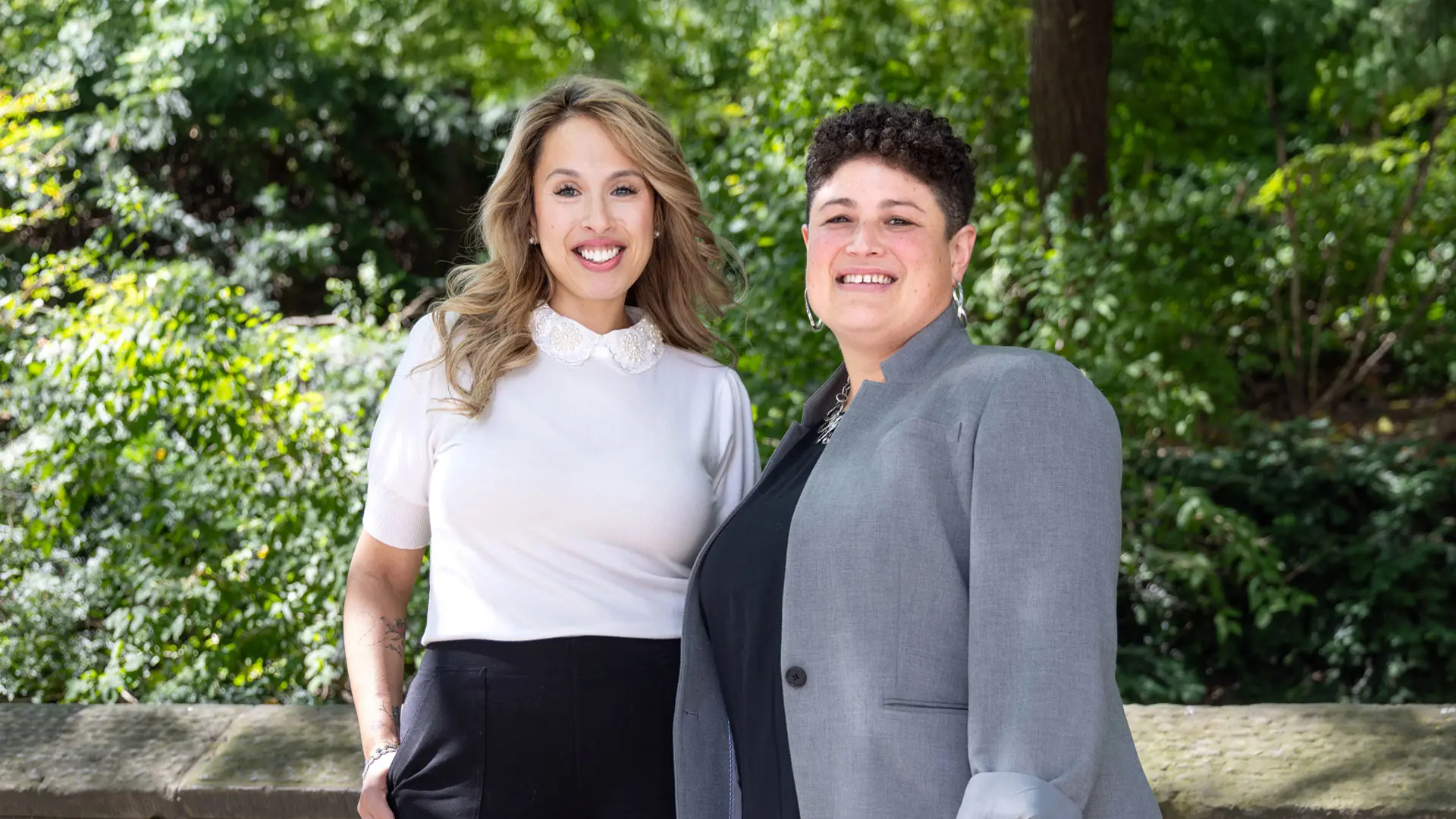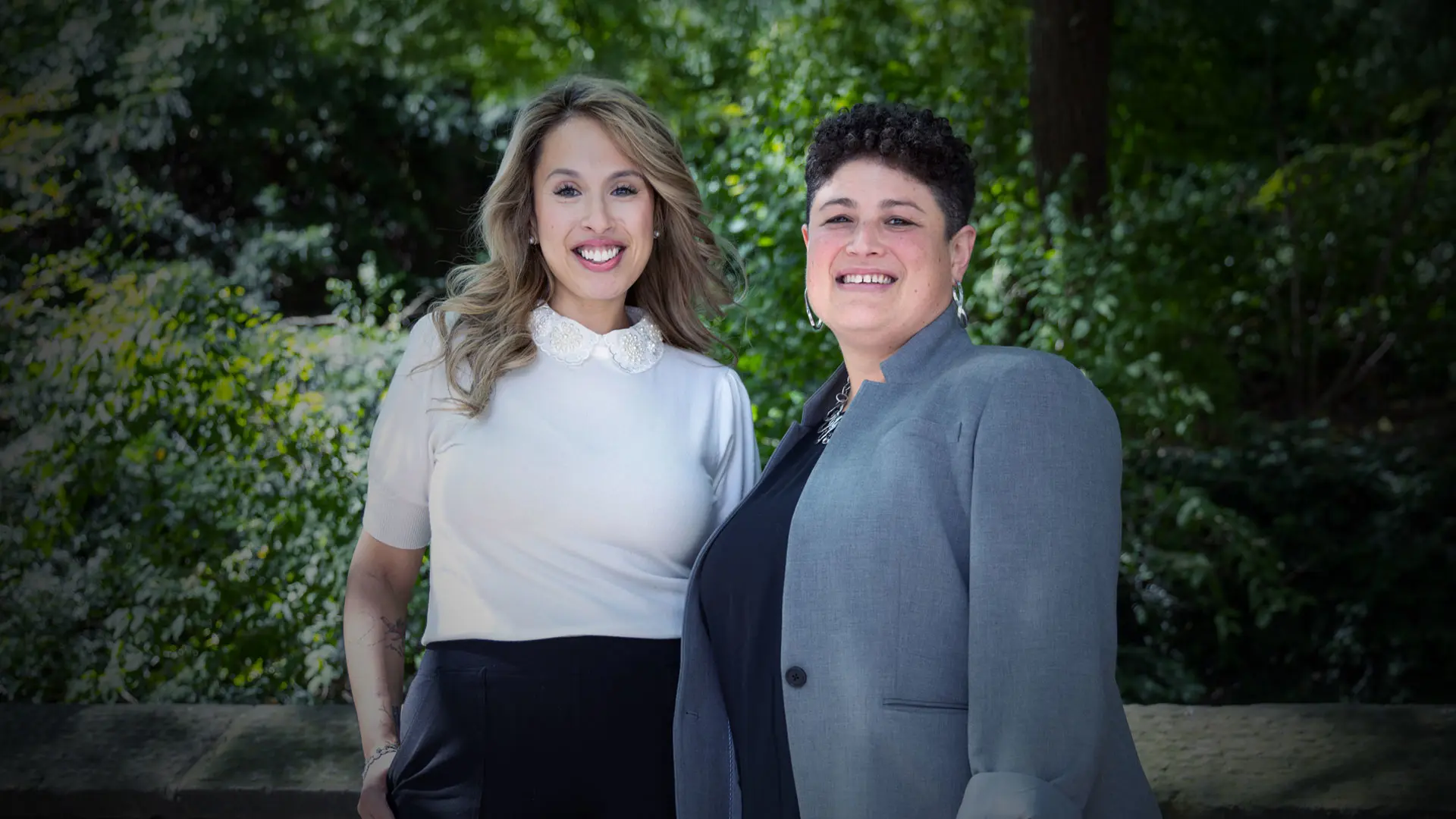In the wake of the COVID-19 pandemic, a team of faculty and staff at the Brookdale Department of Geriatrics and Palliative Medicine launched a carefully coordinated “listening” campaign among colleagues to discover what made their jobs even more challenging now and, just as crucially, how that information might be turned into a more healthful and rewarding environment.
What this Community Building team learned about the current mindset of the workforce—along with the programs they’re starting to implement in response to that feedback—has implications for every employee in the Department, and potentially in other medical centers across the United States.
“Coming out of the COVID-19 pandemic, folks told us they didn’t want to continue to feel so isolated in their jobs; that they wanted a stronger sense of purpose, fulfillment, and connection to others within the Brookdale Department,” says Rabbi Edith Meyerson, DMin, BCC, Associate Professor and Director of Pastoral Counseling and Bereavement Services at the Brookdale Department, and a leader of the Community Building program; along with Christie Mulholland, MD, the then Wellness Champion for the Department; and Sasha Perez-Greenemeier, MPH, Senior Program Manager for Professional Development at the Brookdale Department. “In response, we began developing a model centered on shared experiences and deeper connections, led by a dedicated core team of faculty and staff.”

Sasha Perez-Greenemeier, MPH, left, Senior Program Manager, and Rabbi Edith Meyerson, DMin, BCC, Associate Professor and Director of Pastoral Counseling and Bereavement Services at the Brookdale Department, helped to lead a Community Building Team that launched a “listening” campaign among colleagues in the wake of the COVID-19 pandemic to discover what made their jobs even more challenging now and, just as crucially, how that information might be turned into a more healthful and rewarding environment.
Some team members were nominated, others volunteered. All were united by a common vision: to serve as a support structure for fellow clinicians, researchers, administrators, and staff. Their shared goal was to promote wellness, sustainability, and professional growth across the entire Brookdale Department.
Now, after two years of candid, peer-led conversations facilitated by trained members of the Community Building team, the contours of a more emotionally and physically connected workplace are taking shape—building upon, and extending well beyond, the post-COVID-19 interventions already put in place at both the individual and system levels.
Through this listening campaign, five key areas for departmental growth and connection were identified. Each of these areas is being actively advanced by a dedicated “Community Force” team:
Equitable Opportunities for Mentorship and Development
Collaboration Across Roles, Sites, and Disciplines
Enhancing Connections in Meetings
Department Rituals and Traditions
Social Gatherings and Connections
“What makes this program work so remarkably well is its innovation,” says co-leader Ms. Perez-Greenemeier. “For the first time, we’re creating intentional pathways for nonclinical staff—particularly those in administrative, research, and policy roles—to engage in professional development, peer mentorship, and community-building opportunities historically reserved for faculty.”
One of the most tangible outcomes of this effort has been the launch of Peer Mentoring Communities (PMCs)—small, interdisciplinary groups that meet monthly to share advice, experiences, and strategies for professional growth. These groups were developed by one of the first Community Forces, made up of 17 Brookdale Department faculty and staff members, and reflect the spirit of equity, inclusion, and support that the Community Building program aims to foster across the Department.
“Every member brings a different knowledge, lens-discipline, and wisdom to the community and is eager to share these with colleagues in the spirit of enhancing opportunities for professional growth and mentorship,” says Rabbi Meyerson. “We all have something to offer.”
Aware of the oft-expressed need by employees to tear down silos, another Community Force of 24 members doubled down on promoting collaboration. The vehicle it created was “speed connecting,” a take-off on speed-dating where small groups of meeting attendees, often colleagues from different sites, break away for six-minute blocks of time to get acquainted and make connections. The idea is this can set up the initial scaffolding for future collaborations.
Speed connecting was tested at a recent Brookdale Department Town Hall and the annual Family Field Day in New York’s Central Park, and the enthusiastic response it evoked at both led to the decision to make it an ongoing feature at monthly Town Hall meetings.
With the full backing of Brookdale Department leaders and vital seed money from the Ho-Chiang Foundation, which is dedicated to improving the quality of life for adults and children with serious illnesses, Community Building is entering its third year with plans for growth in the last two of the five targeted areas for improvement: Social Gatherings and Connections, and Department Rituals and Traditions.
“We will continue to develop, modify, and grow our program so it not only improves wellness and professional development across the Brookdale Department, but serves as an academic model and catalyst for other programs across the country,” says Rabbi Meyerson. “Our goal is to get people working at the top of their license, and to bring that sense of self-fulfillment and feeling valued into the rooms of patients and their families so they can deliver gold-standard care.”
